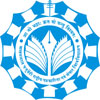Role of Sardar Vallabhbhai Patel Human Resource Development Center (HRDC) for the University:
Director: Dr. Ashish Joshi
Deputy Director: Dr. Anita Soni
The HRDC plays a pivotal role in fostering the professional growth and development of faculty, staff, and students within the university ecosystem. It serves as a centralized hub for designing, implementing, and overseeing various programs aimed at enhancing human capital and organizational effectiveness. Additionally, the HRDC functions as a strategic partner to university leadership, aligning its initiatives with the institution’s overarching goals and values.
Mission of the HRDC:
The mission of the HRDC is to empower individuals within the university community to realize their full potential through comprehensive and innovative human resource development programs. By providing a supportive environment and personalized learning opportunities, the HRDC strives to cultivate a culture of continuous improvement, excellence, and inclusivity. Through its collaborative efforts, the HRDC endeavors to enhance the overall capacity and competitiveness of the university on a global scale.
Key functions:
- Training and Development Programs: Designing, implementing, and facilitating training and development programms for faculty, staff, and students to enhance their skills, knowledge, and capabilities. These programs may cover areas such as teaching methodologies, research skills, leadership development, communication, diversity and inclusion, and technology proficiency.
- Professional Development Support: Providing support and resources for professional development initiatives, including workshops, seminars, conferences, and certifications. The HRDC may offer guidance on career planning, advancement opportunities, and skill enhancement strategies tailored to individual needs and aspirations.
- Talent Management and Succession Planning: Collaborating with university departments and units to identify talent, assess developmental needs, and create succession plans to ensure a pipeline of qualified individuals for key roles within the organization. This includes talent acquisition, retention strategies, and leadership development programme.
- Performance Management Systems: Implementing performance management systems and processes to evaluate employee performance, provide feedback, and support continuous improvement. The HRDC may develop performance appraisal tools, provide training on performance management best practices, and facilitate goal-setting and performance review discussions.
- Organizational Development and Change Management: Supporting organizational development initiatives and change management efforts within the university. This may involve conducting organizational assessments, facilitating strategic planning sessions, fostering a culture of innovation and collaboration, and managing change processes to promote organizational effectiveness and adaptability.
- Employee Engagement and Well-being Programs: Developing and implementing initiatives to enhance employee engagement, satisfaction, and well-being. This may include wellness programs, employee recognition schemes, social events, and initiatives to promote work-life balance and a positive organizational culture.
- Diversity, Equity, and Inclusion Initiatives: Leading efforts to promote diversity, equity, and inclusion within the university community. The HRDC may develop training programme, resources, and initiatives to foster a more inclusive and equitable environment, as well as provide support for diversity recruitment and retention efforts.
- Research and Evaluation: Conducting research and evaluation activities to assess the effectiveness of HRD programs and initiatives, identify areas for improvement, and inform evidence-based decision-making. This may involve collecting and analyzing data, conducting surveys and focus groups, and disseminating findings to stakeholders.
Overall, the HRDC plays a critical role in supporting the university’s mission and goals by investing in the development and well-being of its human capital, fostering a culture of continuous learning and improvement, and promoting organizational excellence and effectiveness.
Orders:
Programme:
